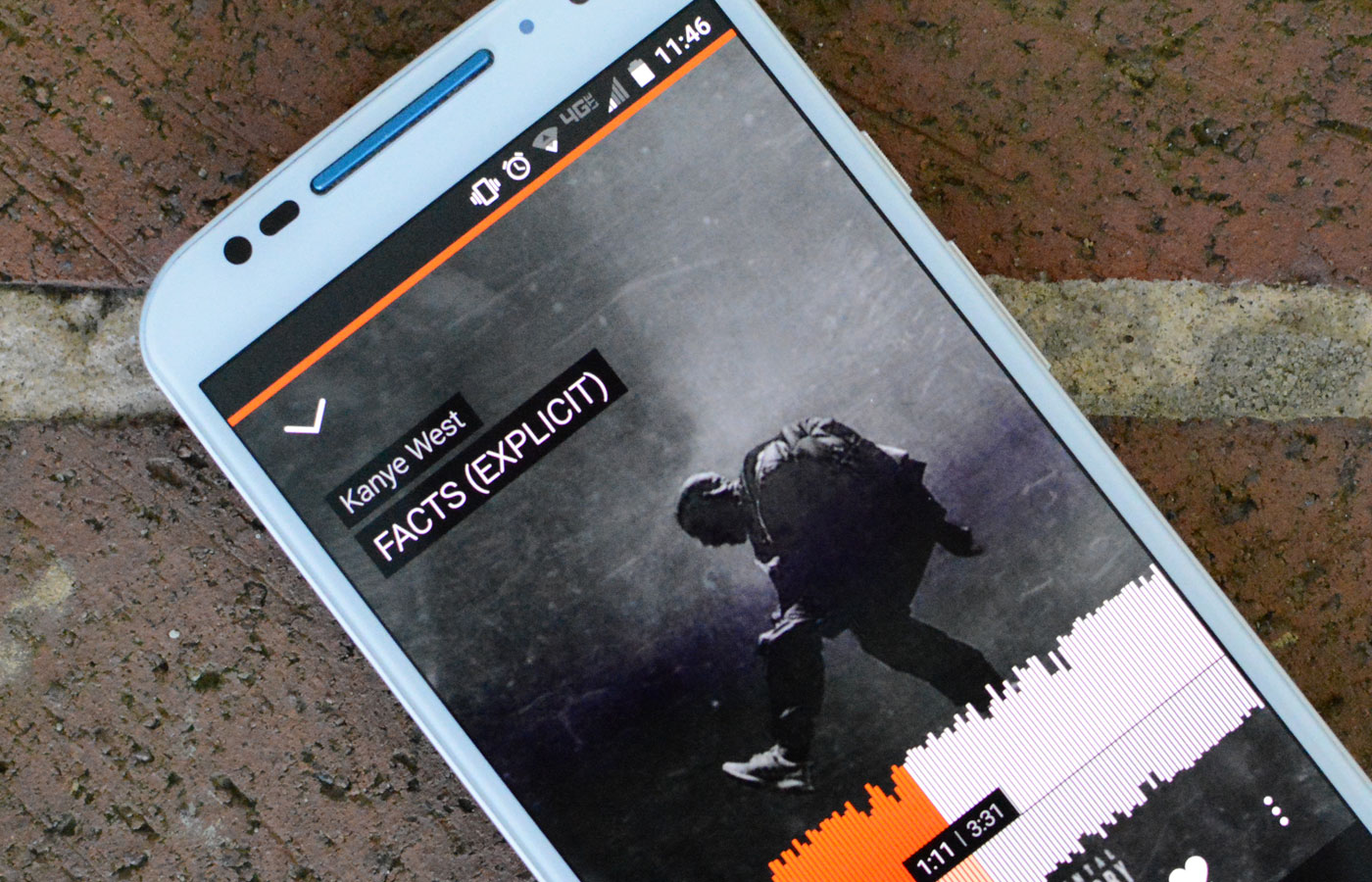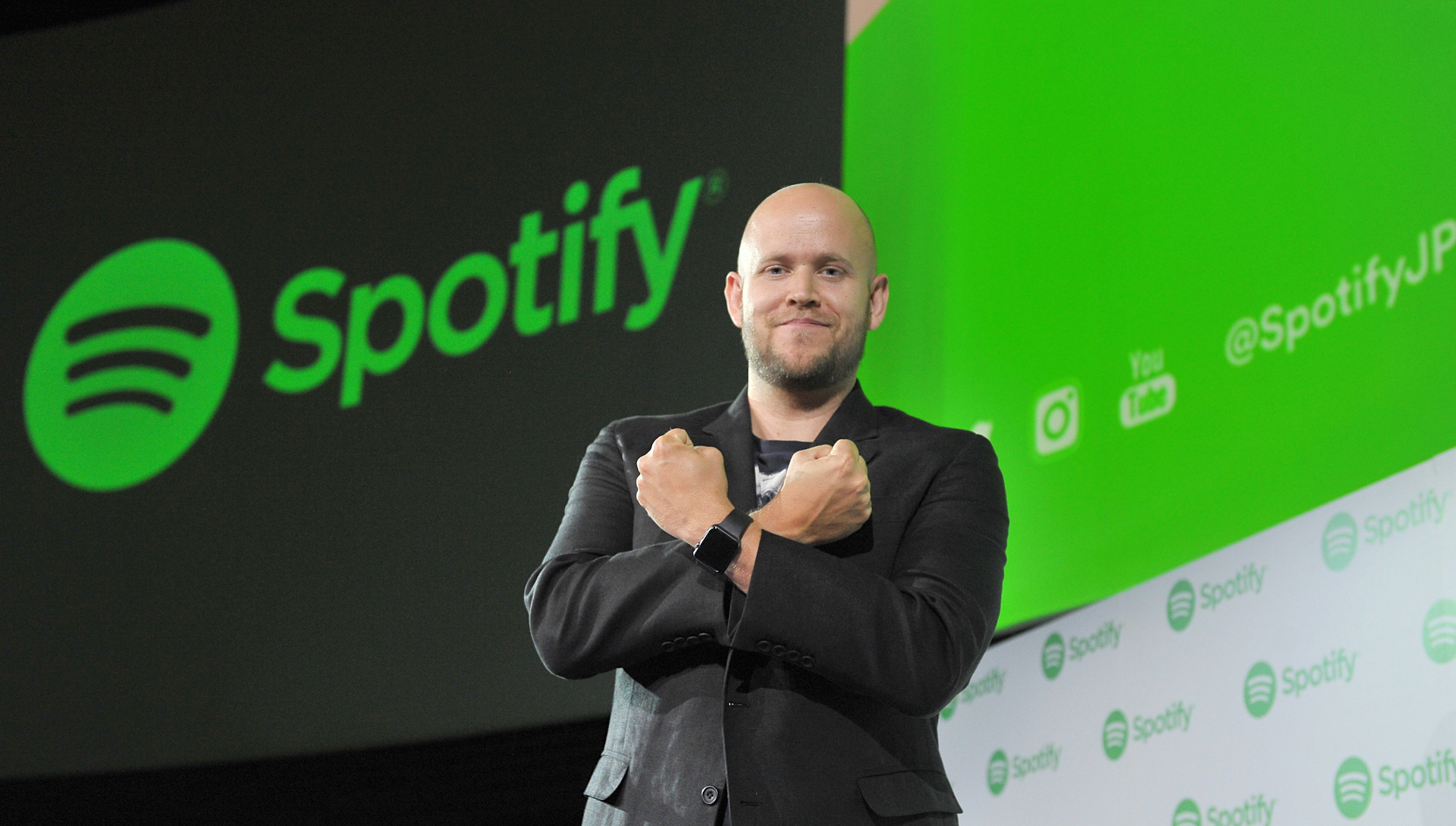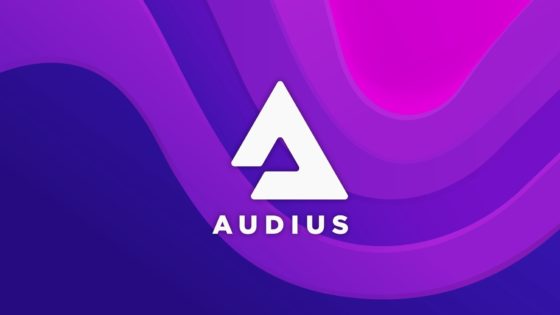Earlier this week Soundcloud posted its 2014 financials. They weren’t pretty. Music Business Worldwide called the company “a broken business model in desperate need of a fix.” Admittedly the numbers look grim: $15.37M revenues, $44.19M net losses. To see the numbers charted, you’d think Soundcloud was on a collision course with financial ruin. Certainly the blogosphere thinks so, with FACT Magazine claiming Soundcloud might be “forced to close” due to these losses. So, is Soundcloud really doomed? The answer: almost certainly not.
Operating at a loss
Let’s start by examining what operating losses are. Tech companies often operate at loss for many years, focusing their revenue on long-term growth and making up the difference through outside investment. Here is the admittedly sad-looking chart for Soundcloud, plotting their financials from 2010 to 2014.
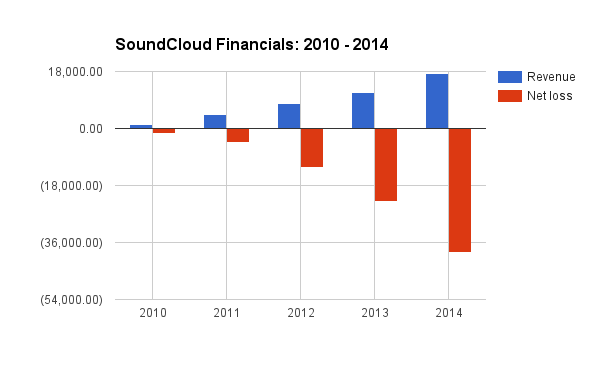
Yeah it looks a little bleak. Those losses are just too big to overcome, right? Here’s the same type of chart from another company you might be familiar with: Amazon.
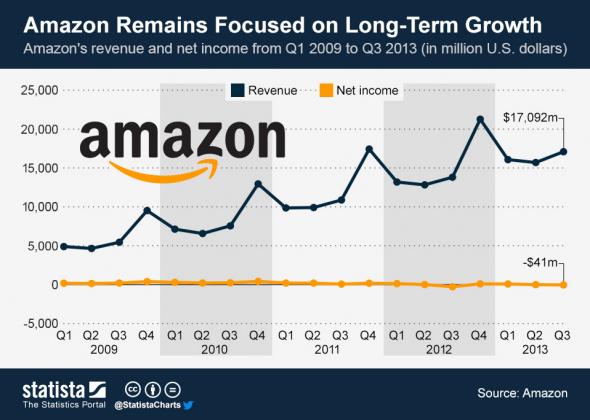
Both charts effectively demonstrate the same thing. Soundcloud and Amazon aren’t currently interested in their Profit/Loss statements. They are both interested in unrestricted growth. This is clear from their soaring revenue. Soundcloud may have charted its largest losses ever, but its revenue rose 54% in a single year.
“After making enquiries, the Directors have concluded that they have a reasonable expectation that the Group will have adequate resources to continue in operational existence for the forseeable future. However, the Directors have concluded that there are material uncertainties facing the business.” – Soundcloud Financials Note
Clearly the model isn’t permanently sustainable. Eventually all tech companies must pay the piper and deliver profits and dividends to their shareholders. For now, though, Soundcloud’s shareholders appear ready to pour as much money into the platform as is required to keep it running. Which is great because…
Major Labels Don’t Want Soundcloud to Close
Major labels own a vast majority of the recordings on Soundcloud. If you make a bootleg remix of Bruno Mars, his label owns part of that track. This can be a challenge for music services. Many “online radio” services like Pandora and iHeartRadio have a loophole and can use a label’s music without permission, simply by paying royalties set by U.S. Congress.
On-demand streaming services like Spotify, Apple Music, and (yes) Soundcloud don’t have it so easy. They must apply for a triumvirate of licenses: one for the recording, one for the song, and one for playing it “publicly.” On-demand streaming contracts are massively favorable to labels. Their royalty revenue comes right off the top, before anyone else gets paid, at a seriously high percentage.
Additionally, as many labels own small pieces (~3-5%) of the services, they get paid twice over. So ask yourself, “What would a label want most?” In the gloom-and-doom scenario, labels strong-arm Soundcloud into shutting down, and get roughly 5% each of whatever money Soundcloud has. Game over, nothing more, Soundcloud is gone forever.
In the more realistic scenario, major labels do anything they can to keep Soundcloud afloat. In doing so, they get to recoup 10 years of lost royalties into the forseeable future, as Soundcloud is logging 4.9 Billion plays each month. Nobody walks away from these kind of numbers. You wouldn’t want them to either because…
Soundcloud’s Changes Are Great For Musicians
OK, we know. Soundcloud isn’t what it used to be, Kaskade gets his own shit taken down, fuck the system and the man. Thing is, these are the problems that deals with major labels solve. Major labels have historically wanted music removed from Soundcloud because they don’t make money from it. If labels can make money from that music, they’ll instantly want as much of it as possible on the Soundcloud network.
Currently Soundcloud’s plan is to create a paid membership which will supplement their ad services. In turn, Soundcloud’s audio fingerprinting system Audible Magic will identify the component recordings in the track, but here’s the rub. Where before, these IDs would lead to takedown notices, now they mean royalty payments to the label. Bada-bing, your Teenage Dream remix pays royalties directly to Capitol Records and UMG. No work on your end.

WOO! (Credit: Getty Images)
“But DMNW,” you say, “the spirit of Soundcloud is free music for all! If we have to pay it’s no different than Spotify.” Not true. Think about the nature of Spotify and other on-demand streaming services. You sign up, and you pay each month for whatever music they decide to give you. Users can make custom playlists, but only with whatever music is available. You certainly won’t find almost any of the amazing Northwest EDM producers on Spotify.
Soundcloud is different. Its spirit has always been that anyone can upload their music to the network. Membership fees are your donation to preserve that spirit. They ensure that the next Madeon can upload a track featuring Stevie Wonder or Beyonce and not have it pulled before gaining the recognition he or she deserves. Investing in Soundcloud is investing in yourself, rather than the whims of an army of curators and computers.
Conclusion
There is no world in which simple operating losses will shutter Soundcloud. It’s too valuable for the music industry now. The company still faces hurdles (mainly, getting Sony to sign their catalog to the network), but their importance is concrete.
Soundcloud is full of enthusiasm. “People have alway recognised the massive scale of SoundCloud and the unique amount of creators and creativity [it has]. Everybody knows that all of the future stars are already on SoundCloud today, and people already know that if you are a star today, you are going to use SoundCloud to create a lot of buzz and promotion around new releases.”
Anyone who tries to tell you Soundcloud’s sky is falling is crying wolf and trying to sell you a bill of goods in exchange for page views. Don’t listen. Invest your mind (and eventually your money) in the future of Soundcloud. It’s the music ecosystem we’ve always wanted.
Important things happen in Pacific Northwest nightlife, and DMNW will send you alerts!


































